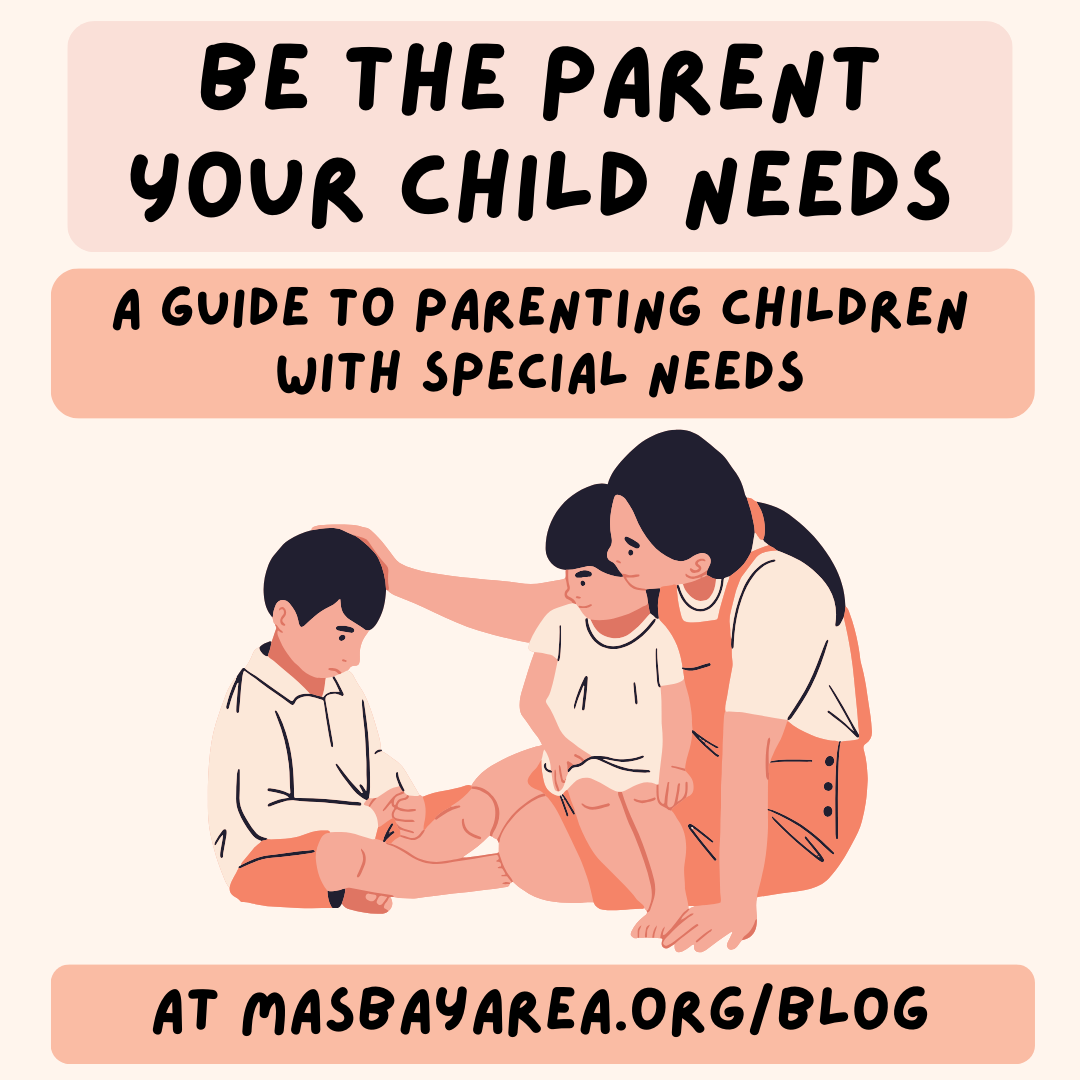
Exhaustion is often viewed as an inevitable part of parenting a special needs kid. Parents who feel overwhelmed and dissatisfied might believe that their feelings are normal, but declining mental health should never be the norm. That’s why MAS Bay Area has assembled seven tips to help you beat fatigue and learn to love parenting again.

- Recognize the Signs
Before you can address your fatigue, you should take an inventory of the symptoms you’re experiencing. Have you gained or lost weight? Is your child acting out on a regular basis? GilbertLab.com notes that issues like these may indicate that you are indeed dealing with fatigue – especially if you are depressed or anxious, too.
- Develop a Plan
Once you’ve assessed your fatigue levels, you should have a better idea of the issues that need treatment. Think about the root cause of these problems. For example, if you consistently feel depressed, do you need to seek mental health treatment? Formulate a plan for tackling your symptoms one at a time.
You can also form a plan for attacking clutter and mess at home. Your kids’ playroom, for example, may be in a constant state of disarray. But with a solid plan, and some help from your kids, it can stay picked up and orderly when it’s not in use. This is an excellent way to help lower your stress levels.
- Practice Shukr
Embracing the practice of Shukr (gratitude) can be profoundly beneficial. In Islam, expressing gratitude is not just a way to acknowledge blessings but also a means to find strength and resilience in challenging times. One heartfelt way to express this gratitude is through sending thank you cards. Utilizing an online card maker allows you to create personalized, custom-designed thank you cards. These platforms offer a variety of templates, fonts, and design elements, enabling you to convey your message of gratitude beautifully and uniquely.
Crafting these cards can be a therapeutic activity, providing a moment of reflection and appreciation for the support and kindness you’ve received. This practice of Shukr, expressed through your custom-made cards, not only strengthens your community bonds but also serves as a reminder of the positive aspects in your life.
- Seek Professional Help
If you’re constantly feeling fatigued and can’t seem to shake it off, it might be time to seek professional help. Chronic fatigue can be a symptom of many different health conditions, some of which are serious. A healthcare professional can provide a proper diagnosis and treatment plan. If you have health insurance, it may cover counseling or other mental health services. However, if you don’t have insurance or your current plan doesn’t cover these services, don’t despair. The healthcare exchange, also known as the Health Insurance Marketplace, is a valuable resource. It allows you to explore various health insurance plans that could provide the coverage you need for counseling and other health services. Remember, your health should always be a priority and there are resources available to help you maintain it.
- Improve Your Eating Habits
To combat fatigue through dietary changes, it’s important to focus on balanced and nutritious eating habits. Incorporating a variety of whole foods like fruits, vegetables, lean proteins, and whole grains can significantly boost your energy levels. These foods provide essential nutrients and sustained energy, unlike processed foods that can lead to energy spikes and crashes. Including foods rich in iron, such as spinach and lentils, is particularly beneficial, especially for those who might experience low iron levels. Staying hydrated is also crucial; drinking plenty of water throughout the day helps maintain energy.
During Ramadan, it’s important to have Suhoor (pre-dawn meal) that includes complex carbohydrates and proteins to sustain you throughout the day. Breaking your fast (Iftar) with dates and water, followed by a balanced meal, can also help in maintaining good energy levels. Remember, small, consistent changes in your diet can make a big difference in fighting fatigue and keeping you energized.
- Invest in Self-Care
Self-care is one of the best antidotes to parental fatigue. You need to tend to your physical and mental needs. It’s important not to do so in a way that may burden others, though. If your partner is handling child care while you’re enjoying a bath, for example, be sure to schedule your self-care during a time that works for them.
- Find a New Home
Finding a home with better amenities can be a game-changer. A living space that caters to the specific needs of your family can significantly reduce daily stress and physical exhaustion. Using an online search tool to find such a home can be incredibly helpful. These tools allow you to filter apartments based on cost, size, location, and, crucially, amenities that might be beneficial for your family’s unique situation.
Whether it’s a home with wheelchair accessibility, a quiet neighborhood, proximity to specialized healthcare services, or simply a more functional layout, finding the right home can alleviate some of the daily challenges and fatigue associated with caring for a special needs child. These online tools make the search more manageable, helping you to find a living space that not only meets your budget and size requirements but also supports your family’s well-being.
Be the Parent Your Child Needs
Parenting is a huge responsibility, and over time, the burden may seem like it’s too much to bear. When your child has special needs that require additional attention, this problem is only exacerbated. Remember to take advantage of professional healthcare services and to take a restorative walk now and then. You can be the parent they need, though, by maintaining a self-care routine and actively fighting against fatigue.
